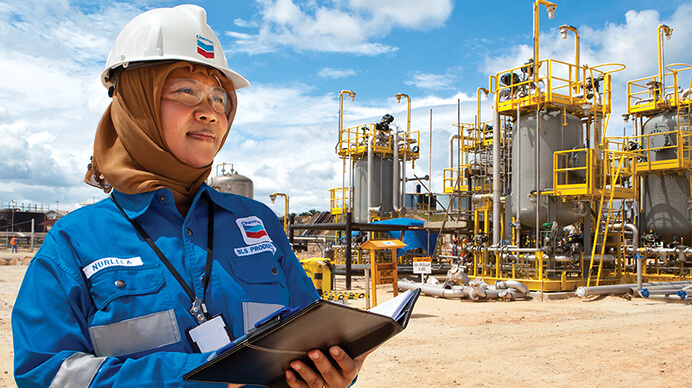Embarking on a career in the construction industry in Canada offers endless opportunities for growth and fulfillment. This comprehensive guide serves as your roadmap to understanding the nuances of construction company jobs in Canada. From visa application processes to job eligibility requirements, salary ranges, benefits, and more, we’ll guide you through every step toward a rewarding career in construction.

1. The Role of Construction Companies in Canada
a. Building Infrastructure
- Contributing to Development: Explore how construction companies play a crucial role in building Canada’s infrastructure.
- Residential and Commercial Projects: Understand the diversity of projects undertaken by construction companies.
b. Job Diversity
- Skilled Trades and Professions: Discover the wide range of skilled trades and professions within the construction industry.
- Specialized Roles: Explore opportunities in specialized areas such as carpentry, plumbing, electrical work, and project management.
c. Career Advancement
- Professional Growth Opportunities: Learn about avenues for career advancement within construction companies.
- Training and Certification: Understand the importance of ongoing training and certification in the construction industry.
2. Visa Application Processes for Construction Company Jobs
a. Understanding Work Visas
- Temporary Work Permits: Explore the process of obtaining a temporary work permit for construction jobs.
- Express Entry for Permanent Residency: Understand pathways for construction professionals to achieve permanent residency in Canada.
b. Specifics for Construction Workers
- Labour Market Impact Assessment (LMIA): Learn about the LMIA requirement for certain construction positions.
- Provincial Nominee Programs (PNPs): Explore how PNPs can be utilized by construction workers for immigration.
c. Navigating Immigration Requirements
- Language Proficiency: Understand language proficiency requirements for immigration and construction roles.
- Trade Certification: Familiarize yourself with the trade certification requirements for specific construction trades.
3. Job Eligibility Requirements
a. Educational Background
- Trade School Education: Explore the educational qualifications necessary for entry into various construction trades.
- Apprenticeship Programs: Learn about apprenticeship programs as a pathway to gaining practical experience.
b. Experience and Skills
- Prior Work Experience: Understand the importance of prior construction experience in securing employment.
- Technical Skills: Highlight the technical skills required for specific construction roles, such as carpentry, welding, or concrete work.
c. Safety Training and Certification
- Occupational Health and Safety (OHS): Familiarize yourself with OHS regulations and requirements in the construction industry.
- First Aid Certification: Explore the importance of first aid certification for construction workers.
4. Salary Range for Construction Company Jobs in Canada
a. Overview of Construction Salaries
- Average Salaries: Explore the average salaries for construction workers based on trade and experience level.
- Union vs. Non-Union Wages: Understand the differences in wages between unionized and non-unionized construction companies.
b. Factors Influencing Salaries
- Type of Construction Project: Explore how salaries may vary based on the type and scale of construction projects.
- Geographical Location: Understand how salaries may differ based on the region or province within Canada.
c. Negotiating Compensation
- Researching Industry Standards: Learn how to research and benchmark salaries to negotiate effectively.
- Additional Benefits: Evaluate non-monetary benefits such as healthcare benefits, retirement plans, and paid time off.
5. Application Processes for Construction Company Jobs
a. Job Search Strategies
- Online Job Portals: Explore specialized online job portals for construction job listings.
- Networking within the Industry: Understand the importance of networking with construction professionals and companies.
b. Crafting a Strong Construction Resume
- Highlighting Relevant Experience: Tailor your resume to highlight relevant construction experience and skills.
- Showcasing Safety Record: Emphasize your commitment to safety and adherence to OHS regulations.
c. Preparing for Construction Job Interviews
- Common Interview Questions: Familiarize yourself with common interview questions in the construction industry.
- Demonstrating Technical Skills: Showcase your technical skills and problem-solving abilities during interviews.
6. Benefits of Working with Construction Companies in Canada
a. Health and Safety Benefits
- Workplace Safety Programs: Explore workplace safety programs and initiatives implemented by construction companies.
- Health Insurance Coverage: Understand the typical health insurance coverage provided to construction workers.
b. Professional Development Opportunities
- Training and Certification Programs: Learn about opportunities for training and certification provided by construction companies.
- Career Advancement Initiatives: Explore avenues for career growth within the construction industry.
c. Work-Life Balance and Flexibility
- Flexible Work Arrangements: Understand how construction companies may offer flexible scheduling options.
- Paid Time Off: Explore policies related to vacation days, sick leave, and other paid time off benefits.
7. Workplace Culture and Safety in Construction
a. Safety Culture
- Commitment to Safety: Explore the importance of fostering a culture of safety within construction companies.
- Safety Training Programs: Understand the role of safety training programs in promoting workplace safety.
b. Team Collaboration
- Collaborative Work Environment: Learn about the importance of teamwork and collaboration on construction sites.
- Effective Communication: Emphasize the role of effective communication in ensuring project success and safety.
8. Navigating Challenges in Construction Careers
a. Adapting to Technological Changes
- Embracing Technology: Explore how technology is transforming the construction industry and the skills needed to adapt.
- Training on New Equipment: Stay updated on training programs for operating new construction equipment and machinery.
b. Physical Demands of the Job
- Maintaining Physical Health: Explore strategies for maintaining physical health and preventing injuries on construction sites.
- Ergonomic Practices: Emphasize the importance of ergonomic practices and equipment to minimize physical strain.
c. Addressing Labour Shortages
- Recruitment and Retention Strategies: Explore strategies for attracting and retaining skilled workers in the construction industry.
- Investing in Training Programs: Understand the importance of investing in training programs to address skill gaps and labour shortages.
Conclusion
Embarking on a career with construction companies in Canada is a journey filled with opportunities for growth, challenges, and fulfillment. This comprehensive guide serves as your compass, providing insights into